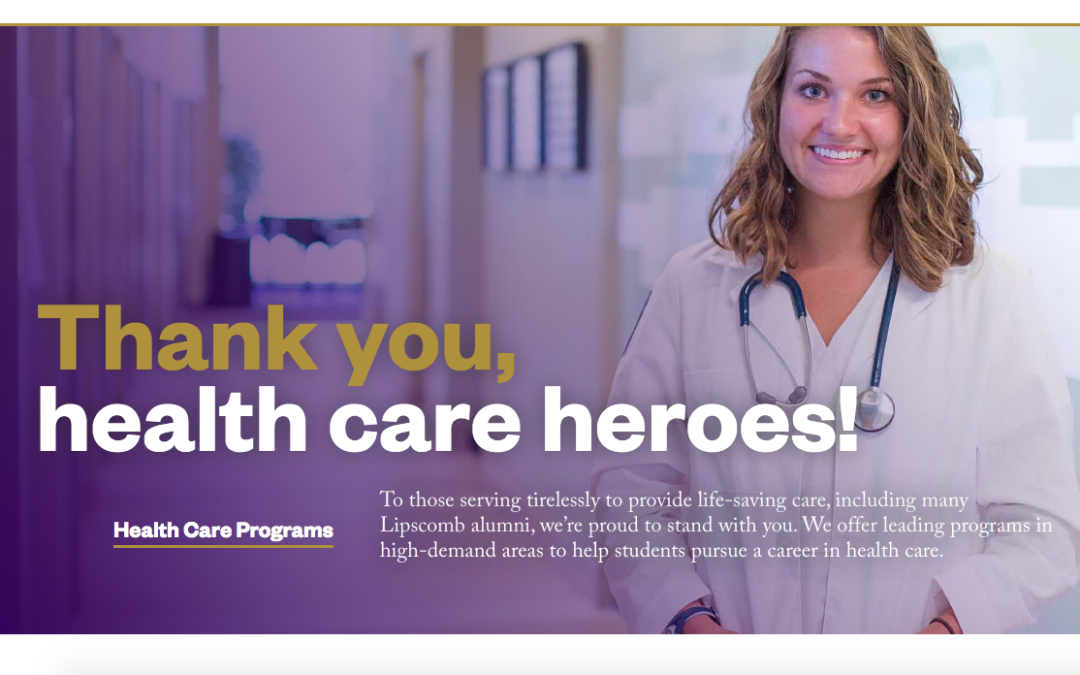Lipscomb’s recent graduates and others currently in the nursing program have been thrown into the thick of the COVID-19 pandemic.
They join an army of new nurses and nursing students nationwide who have been called into action because of the emergency.
“Many signed up for the COVID-19 relief team at Vanderbilt and other area hospitals, which they all did voluntarily and not under any mandatory process from the School of Nursing or Lipscomb,” said Dr. Chelsia Harris, director of the nursing program at Lipscomb. “Many are getting paid in some capacity.”
“Some of our graduates went straight to work in hospitals and other health-care facilities with COVID-19 units, post-graduation,” Harris said. “Out of 35 graduates, at least 15 or 16 that I know of have been doing that.”
Kayla Neal is a recent graduate, who works as a patient care tech at Skyline Medical Center and AHC Cumberland nursing home.
Neal, who graduated in May, has been in close vicinity of quarantined sectors.
“They take our temperature at the beginning of the shift and make sure we are wearing our required masks,” Neal said. “All patients are screened beforehand and are also required to wear masks when being transported around.”
Neal said the increasing number of patients, due to COVID, is putting stress on the healthcare system.
“The nurse-to-patient ratio has increased from five-to-one to six-to-one just while I’ve been working there, and the responsibility for each employee has increased significantly as well,” said Neal.
“COVID-19 is a stressful thing, but it gives me an advantage because I’m starting off as a new nurse in the midst of a pandemic, so I am being trained and prepared for so much more than usual,” said Neal.
Mackenzie Allen is a senior and is working as a care partner at Vanderbilt Pediatric Clinic
“The positive as a nurse and being a nursing student is that everyone is very grateful to be getting the help they are receiving,” Allen said. “Even if it’s just their temperature being taken and being kind, or just being a smiling face that helps ease the anxiety a lot.”
“We are going to make sure they are trained and skilled to go in and do their personal protection equipment appropriately and to be as safe as possible,” Harris said.
“I’ve learned most of my career and especially now that God does not call the equipped, He equips the called.”

